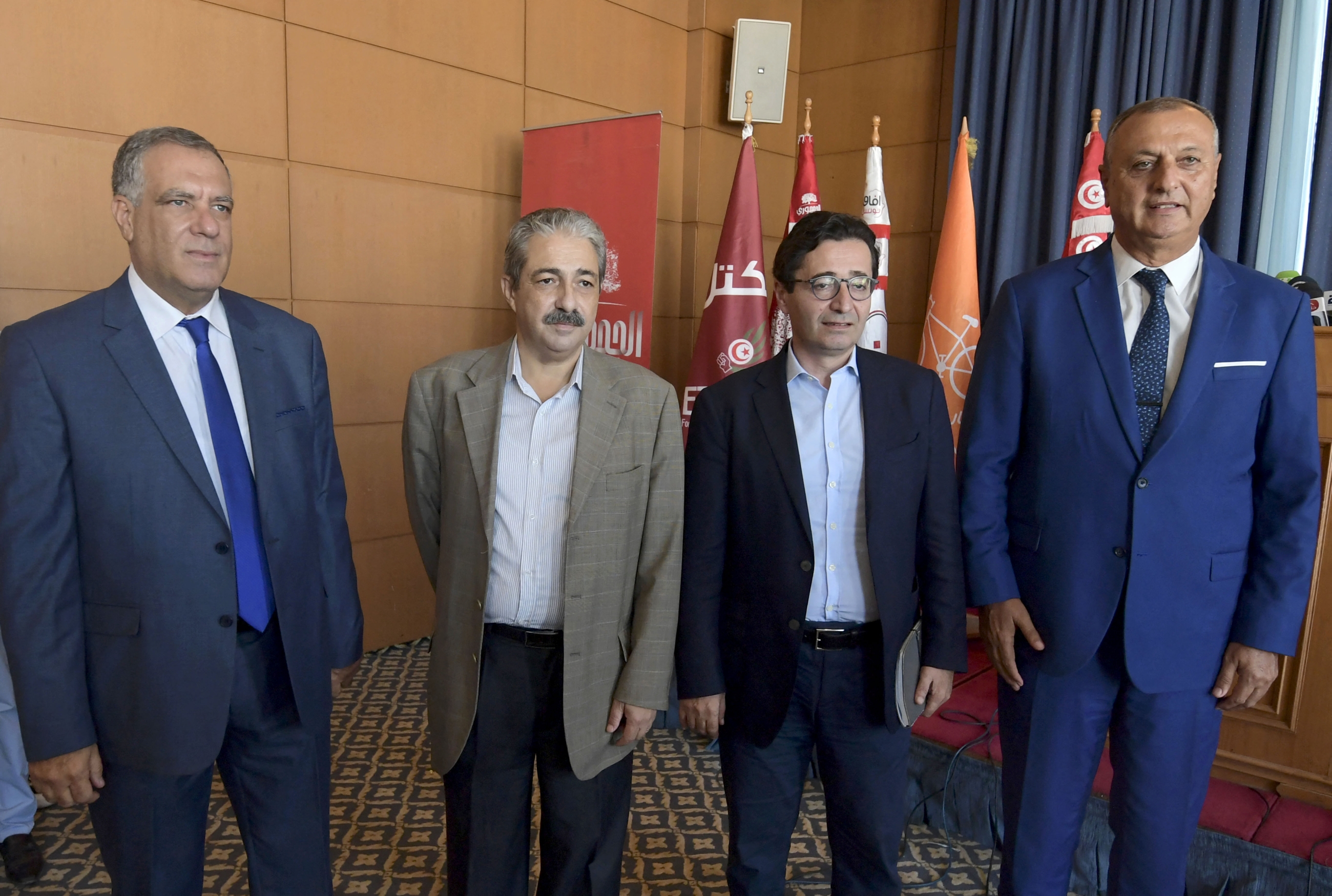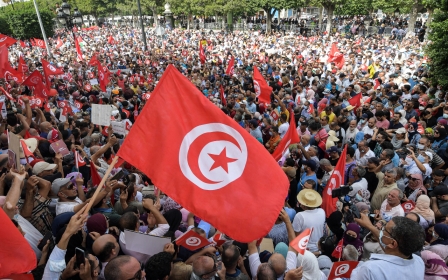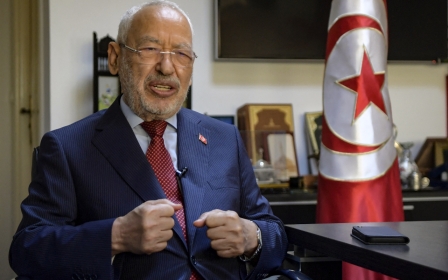Tunisian parties launch movement against President Kais Saied's power grab

Four Tunisian political parties announced on Tuesday that they would work together to oppose moves made by President Kais Saied, days after he further consolidated power and declared he would ignore parts of the constitution and rule by decree.
The Democratic Current Party (Attayar), Ettakatol (FDTL), the Republican Party (Al Jomhouri) and Afek Tounes announced the formation of the coalition in a news conference in the capital Tunis.
Ghazi Chawashi, the secretary-general of the Democratic Current Party, said the objective of the coalition was to express the party's refusal of the monopolisation of power.
"If the president persists in his position, we will opt for any form of possible mobilisation to defend democracy and the achievements of the revolution," Chawashi was quoted by the state news agency Tap as saying.
On Wednesday, Saied gave himself the power to rule by decree, two months after sacking the prime minister, suspending parliament, and assuming executive authority.
While many Tunisians have backed the president and see his actions as necessary to remove a corrupt and unpopular political elite, his critics from across the spectrum have said he is undermining democratic gains from the 2011 revolution that ended autocratic rule and triggered the Arab spring.
Chawashi said that if Saied "insists on his decisions", the coalition would apply pressure and "exercise all peaceful means of protest".
Fadhel Abdelkefi, an economist and former minister whose party Afek Tounes has two seats in the frozen assembly, warned that the latest crises could lead to disaster for Tunisia's already suffering economy.
Meanwhile, Issam Chebbi of the Republican Party accused Saied of "exploiting" Tunisia's multiple crises to "grab power".
"We totally reject this and call on him to reverse his decisions," Chebbi said.
'Manufactured constitutional crisis'
In May, Middle East Eye revealed a secret document was being circulated recommending Saied invoke Article 80 of the constitution and seize control of the country, citing emergency powers.
In late July, he did exactly that, saying the coronavirus pandemic and the economic situation had become so dire that he needed to freeze parliament and dismiss the government, as well as launch an anti-corruption drive.
Hichem Mechichi, his dismissed prime minister, was detained and beaten by security forces after being told that he would be replaced, sources told MEE, and he made no public appearance for 10 days after Saied's announcement.
Mechichi's government was supported by Ennahda, the largest party in Tunisia's deeply fragmented legislature.
While Ennahda has held the majority of seats in parliament since the 2019 elections, Tunisia has been governed by successive technocratic governments since early 2020. The last time Ennahda led the government was in 2013.
Anxiety about the direction of events in Tunisia has been on the rise both internally and among western democracies, with several US lawmakers pushing the Biden administration to determine whether Saied's 25 July announcement was a coup.
In a letter made available to MEE, Representatives Gerry Connolly, Tom Malinowski and Rashida Tlaib recently urged the State Department to take "stronger diplomatic steps" to address the north African country's political crisis.
The members of Congress claimed Saied was undermining Tunisia's nascent democracy through "the imposition of a manufactured constitutional crisis", and the lawmakers called for an investigation into whether the government's use of military tribunals to judge civilians was a breach of Tunisian and international law.
Middle East Eye delivers independent and unrivalled coverage and analysis of the Middle East, North Africa and beyond. To learn more about republishing this content and the associated fees, please fill out this form. More about MEE can be found here.




